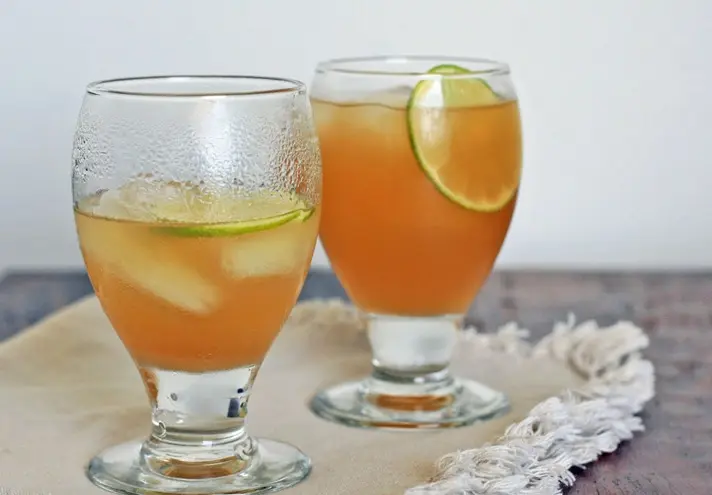Ginger beer is a popular beverage enjoyed by many people around the world. Its unique taste, characterized by a spicy ginger flavor, makes it a refreshing choice for both casual drinking and as an ingredient in cocktails. Among the various types of ginger beer, Jamaican ginger beer stands out due to its distinct taste and cultural significance. A common question that arises when discussing ginger beer, especially Jamaican ginger beer, is whether it contains alcohol. This essay delves into the composition, history, and variations of Jamaican ginger beer to address this question comprehensively.
Historical Background of Ginger Beer
The origins of ginger beer can be traced back to the 18th century in England. Originally, ginger beer was a fermented beverage made from water, sugar, ginger, and sometimes lemon. The fermentation process involved the use of ginger beer plant (GBP), a symbiotic culture of bacteria and yeast (SCOBY). This process naturally produced alcohol, making traditional ginger beer an alcoholic drink, typically containing around 4-5% alcohol by volume (ABV).
As ginger beer spread to other parts of the world, including the Caribbean, different variations emerged. Jamaican ginger beer, in particular, developed its own identity, influenced by local ingredients and brewing methods. Today, Jamaican ginger beer is known for its robust and spicy ginger flavor, which sets it apart from other ginger beers.
Traditional Jamaican Ginger Beer
Traditional Jamaican ginger beer is often made through a fermentation process similar to the original method used in England. The ingredients typically include fresh ginger root, sugar, water, and sometimes lime or lemon juice. The mixture is left to ferment for a period, usually a few days, allowing the natural yeasts to convert the sugars into alcohol and carbon dioxide.
Due to this fermentation process, traditional Jamaican ginger beer does contain alcohol. However, the alcohol content can vary depending on the length of fermentation and the specific recipe used. Generally, the alcohol content in homemade Jamaican ginger beer is relatively low, often ranging from 0.5% to 2% ABV, which classifies it as a low-alcohol beverage. Despite this low alcohol content, it is important to note that traditional Jamaican ginger beer is not entirely alcohol-free.
See Also: What is the Most Nutritious Beer?
Commercial Jamaican Ginger Beer
In the modern market, many commercial brands produce Jamaican ginger beer. These brands cater to different preferences, with some offering non-alcoholic versions and others producing alcoholic variants. The distinction between alcoholic and non-alcoholic ginger beer in the commercial context is crucial for consumers who are either avoiding alcohol or looking for an alcoholic beverage.
Non-alcoholic ginger beer is often produced through a different method than traditional fermentation. Manufacturers use carbonation techniques to achieve the fizzy texture without relying on natural fermentation. This method involves mixing water, ginger flavoring (which can be natural or artificial), sugar, and carbon dioxide. The absence of fermentation ensures that the beverage remains alcohol-free. Popular brands like D&G (Desnoes & Geddes) and GraceKennedy produce non-alcoholic Jamaican ginger beer, which are widely available in supermarkets and online stores.
On the other hand, some brands offer alcoholic Jamaican ginger beer, which retains the traditional fermentation process. These products are typically labeled clearly to indicate their alcohol content. Alcoholic ginger beer can be found in various strengths, ranging from light (around 2% ABV) to stronger versions (up to 6-7% ABV). Consumers looking for an authentic taste of traditional Jamaican ginger beer with a mild alcohol kick often prefer these versions.
Health Considerations and Cultural Significance
When discussing the alcohol content in Jamaican ginger beer, it is also important to consider health implications and cultural significance. For individuals who avoid alcohol due to health reasons, religious beliefs, or personal preference, non-alcoholic ginger beer provides a suitable alternative. The distinct flavor of ginger beer can be enjoyed without the effects of alcohol, making it a versatile beverage for various occasions.
Ginger itself has numerous health benefits. It is known for its anti-inflammatory properties, aiding digestion, and providing relief from nausea. Drinking ginger beer, whether alcoholic or non-alcoholic, can offer these benefits. However, it is important to consume ginger beer in moderation due to its sugar content, especially in commercial versions.
In Jamaican culture, ginger beer holds a special place, especially during festive occasions. It is a common homemade beverage during Christmas and Easter celebrations. Families often pass down recipes through generations, each adding their unique touch to the drink. The act of brewing ginger beer at home is a cherished tradition that brings families together, creating a sense of community and shared heritage.
Conclusion
In conclusion, the question of whether Jamaican ginger beer contains alcohol depends on the specific type and method of production. Traditional Jamaican ginger beer, made through fermentation, does contain a small amount of alcohol, typically ranging from 0.5% to 2% ABV. However, many commercial versions of Jamaican ginger beer are non-alcoholic, produced using carbonation techniques to mimic the fizzy texture without fermentation.
For those who enjoy the spicy, robust flavor of ginger beer but wish to avoid alcohol, non-alcoholic versions are widely available. On the other hand, individuals seeking an authentic taste of traditional ginger beer with a mild alcohol content can find suitable options in the market. Understanding the distinction between these types allows consumers to make informed choices based on their preferences and needs.
Ultimately, Jamaican ginger beer, whether alcoholic or non-alcoholic, remains a beloved beverage that offers a unique taste experience. Its rich history, cultural significance, and health benefits make it a drink worth exploring and enjoying in moderation.


